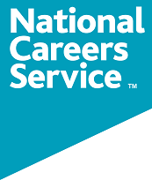Careers
Careers Leader: Mr Tomkins
Tel: 01403 261086 ext: 302Email: itomkins@theforestschool.net
At The Forest School it is our aim to ensure that every student receives the highest level of career guidance education to assist them to develop employability skills and knowledge of the Next Steps after GCSE. The support provided is tailored to the needs of each individual student as we fully appreciate the need for a comprehensive careers programme. Each students programme will allow them to make an informed, confident decision about their post 16 future, with a clear and realistic career plan.
The provision at Forest is significantly above most secondary schools across the country. This has resulted in the school being well above the national average on the Gatsby Bench Marks. The Benchmarks are designed to ensure that a 'gold standard' of Career Education is provided to all students to equip them for their pathways after school.
The 8 Benchmarks are as follows:
- A stable career programme
- Learning from career and labour market information
- Addressing the needs of each student
- Linking curriculum learning to careers
- Encounters with employers and employees
- Experience of workplaces
- Encounters with further and higher education
- Personal Guidance
We would like to hear from parents and carers, employers, colleges or other career relevant groups if they would like to support us in any of the above or in other ways. Please email the school office on office@theforestschool.net for more information.
Overview of Our Careers Programme at Forest
Overview of our Careers Programme at Forest
Careers Drop In (All year groups)
Any student requiring careers advice or information is welcome to drop in during break or lunch time.
Career Guidance Session (All year groups)
Interviews are offered to all students throughout the academic year.
Post 16 Education and Training Information Evening (Year 11)
Local colleges, 6th form providers and apprenticeship providers attend our Information evening to explain the options and routes open to students. Parents and students are strongly advised to attend.
Work Experience (Year 10)
All Year 10 students have the chance to spend a week in a work placement to gain some hands on experience ready for life post Forest.
Careers Speed Networking (Year 9)
A fast pace event allowing students to find out more information about different careers first hand from employers/ employees.
KS4 Vocational Courses
For those wishing to complement their academic studies we offer the opportunity to obtain a qualification in Motor Vehicle, Animal Care or Construction at Crawley and Brinsbury Colleges.
Careers Talks (All Year groups)
External speakers provide an insight into their career, the path they took and qualification requirements.
Career Detectives (Year 7)
Each Year 7 tutor group has a different industry employee attend during tutor time, each morning over the course of a week, for a quick fire Q&A session. The tutor group who guesses the most careers correctly wins!
Challenging Stereotypes (Year 8)
Employers/ Employees are invited in to discuss their careers with each tutor group challenging the stereotypes that exist in the world of work.
Preparing for Interview (Year 11)
Employers are invited in to host mock interviews with Year 11 students. The students apply for a generic job advert or one produced by the employer and then go through the application process and have an interview with the relevant employer.
Throughout the year, students will have the opportunity to engage with employers during Challenge Days, Careers Week, enterprise activities, industry competitions, attending careers fairs, careers presentations, and more.
At Forest we are fully committed to doing all that we can to ensure that our students are fully aware and understand all the possibilities available and open to them in every sector of employment.
We are keen to work with employers to support our students in preparation for future careers and employment. Our aim is to help all our students reach their potential. With the help of employers, we can ensure our students are fully informed about their next steps and what is available to them.
There are many ways employers can help support our students here at Forest. Below are just a few of the ways you could help:
- offering talks to students interested in a particular sector or area of industry
- delivering an assembly to students on a particular sector or area of industry to inform students about the world of work
- offering interview experience
- offering work experience
- linking with a relevant Head of Subject in school and allowing visits to the workplace for a class, where it links with a topic being studied, or coming in to speak to a class to bring real world context to a particular topic
- helping to build our students' knowledge of employability skills and the workplace
If you are an employer and would like to support us in any of the above or in other ways, please email the school office on office@theforestschool.net
For further reading on the benefits of employer engagement please review the links below:
Education and Employers - Employer engagement in education: insights from international evidence for effective practice and future research
Education and Employers - Improving the life chances of children and young people by connecting volunteers from the world of work with schools
The Careers and Enterprise Company - How to support careers and enterprise activities in schools: A practical guide for employers
The Careers Year
September
- Year 11 start to consider Post 16 destinations and routes
- Careers interviews conducted
- Year 11 Post 16 Education & Training Information Evening
- Year 11 introduction to transition into Further Education and Apprenticeship Workshops
October
- Launch Year 10 Work Experience
- Year 11 transition assembly
- Continue support/interviews for Year 11 transition
- Year 9 Careers Speed Networking
November
- Year 10 support with Work Experience placements
- Year 11 support for post-Forest intentions
- Year 11 to start college/sixth form applications
- Post 16 transition lesson to all Year 11
December
- Year 11 to ensure all college applications are submitted by the Christmas break
- Continued support for Year 10 Work Experience
January
- Deadline for sixth form/college applications
- Introduction to NCS and their Summer Programme
- Deadline for return of Work Experience intentions and medical form
- Year 9 Options Evening
February
- Year 11 college interviews start to take place
- Year 10 placements made for Work Experience
March
- Continue support for Year 10 Work Experience placements
April
- Year 11 students interested in Apprenticeships to start applying for positions
May
- Final documentation/preparation for Year 10 Work Experience
July
- Year 10 Work Experience
August
- Year 11 GCSE results
The school provides advice and guidance in respect of future opportunities covering sixth form colleges, apprenticeships and employment opportunities.
Careers in the Curriculum
Careers in the Curriculum
When thinking about choosing options, students may find it beneficial to look at which careers are possible if certain subjects are studied. Success at School and Jobs by Subject - Careerpilot are really useful websites to help students explore some of the subjects they study in school and the career pathways they can lead to.
This link to the National Careers Week - Subject Resources will also provide students with a wealth of information supporting careers within Maths, English, Science, History, Geography and PSHE.
Students are introduced to each subject and its possible career pathways and outcomes on a weekly basis to start broadening their minds to life post Forest. It also helps students to make better informed choices at GCSE, which inevitably helps them to be better prepared when it comes to their choices at Post 16 and Post 18.
Choosing Subjects and Apprenticeships
When thinking about choosing options with the view of moving onto an Apprenticeship, student’s will need to think about which subjects lead into which career pathways. If a student is considering moving onto an Apprenticeship after their GCSE’s then they may find the link to Amazing Apprenticeships - Subject Snapshot Bundle a very useful tool to help them make a more informed choice when selecting their options.
The Subject Snapshot Bundle
Although this is a publication used as a guide for teachers, it clearly sets out, subject by subject, the companies who run Apprenticeship programmes, as well as the types of roles available.
GCSE Options for September
GCSE Options for September
During the Spring and Summer Terms at Forest we prepare our Year 9 students for their GCSE Options ready for September.
In preparation for the GCSE Options Process we advise that you look ahead. Some questions to start thinking about and consider are listed below:
- Which subjects am I good at?
- Which subjects do I enjoy?
- Which subjects am I considering?
- Why am I considering these subjects?
- How do I enjoy learning?
- What career do I have in mind?
Other important points to consider:
- The core subjects of English, Maths and Science are important for most careers.
- Students should not choose a subject just because they like the teacher or their friends are choosing it.
- Students should choose subjects they will enjoy - this will help motivate them to learn.
- It is never too early to think about long-term career plans or higher education goals, and students should start to research entry requirements and training that may be involved. It is worth checking entry requirements for future courses carefully, as some careers and courses will specify certain qualifications and may ask for specific grades.
Many young people will have no career plans in Year 9 when they choose their subjects for Key Stage 4. Even so, it is important for students to start thinking about subjects that might affect their Post 16 choices.
In general, whichever subject’s students choose for Key Stage 4, there will still be a range of options open to them after Year 11. However, for some A Level courses, such as Maths, Languages or the Sciences, students will need to have achieved a certain grade in the same subject at GCSE in order to continue with the subject at A Level. Furthermore, some university courses will specify certain GCSE grades in their entry requirements, particularly for Maths or Science degrees.
For students with aspirations for a career in Medicine, Dentistry or Veterinary, top GCSE results across the board will be required. This is also the case for students hoping to study at universities such as Oxford or Cambridge in the future.
Below are links to key articles which will help in planning for GCSE options.
National Careers Service
https://nationalcareers.service.gov.uk/
Career Pilot
https://www.careerpilot.org.uk/information/your-choices-at-14
GCSE Requirements for Medicine
Success at School
https://successatschool.org/advicedetails/508/What-are-my-GCSE-Options%3F
Things to Consider when choosing your GCSE Options
https://www.studential.com/GCSEs/choosing-your-GCSE-subject-options
Are your GCSE Options important?
https://www.studential.com/student-underground/are-your-gcse-options-important
The essential guide to choosing your GCSE Options
https://www.careeralchemy.co.uk/blog/choosing-gcse-subjects-the-essential-guide
Pathways after GCSE
What are your options at the end of Year 11?
All students must stay in education until they are 18. There are three main options at the end of Year 11 to enable this to happen. Students can:
- Remain in full time education - Sixth Form or College
- Apply for apprenticeships and traineeships
- Take on part-time training with a job, self-employment or voluntary work
Full time Education
If you decide to remain in full time education you can study at a Sixth Form, College, University Technical College or a Training provider. There are many academic or job-related courses to suit ALL ability levels, such as A Levels, BTEC, T Levels and NVQs, make sure you research the courses available to find out what best suits you and the career you want. Make sure you attend open days to find out more about the institution and the courses they offer, see what support and guidance is available, check their entry requirements and application deadlines.
Apprenticeships
An apprenticeship is a skilled job with training. Every apprentice is guaranteed a minimum wage linked to their age. They are available at all academic levels - whether you are leaving school without GCSEs or completing your A Levels. There are apprenticeships in industries like engineering, health and accountancy - plus a host of careers you would never think of. Entry requirements for apprenticeships vary. For more information on apprenticeships see our Apprenticeship section on our website.
Traineeships
Traineeships are designed to give learners aged 16-23 who are unemployed the requisite numeracy and literacy skills, alongside work preparation and on-the-job training, to progress either to an apprenticeship or into employment. Designed to last no longer than 6 months, Traineeships offer young learners the opportunity to gain basic employability skills and knowledge whilst deciding which progression route they are most suited to.
Jobs with training
You can work or volunteer full time after Year 11 but you must also train or study at the same time for a minimum of 280 tutor led learning hours a year. Training may be one day a week over a year, through evening or distance learning.
Choosing your Next Steps
Below are links to key articles which will help in planning for GCSE options.
A Guide to Apprenticeships
An Introduction to Apprenticeships
How Apprenticeships Work
An apprenticeship is a real job where students learn, gain experience, get paid and gain qualifications. To be an apprentice you must be 16 or over, not in full time education and live in England. By the end of your apprenticeship, you can progress onto the next apprenticeship level or will hopefully have developed enough to help you succeed in your chosen career.
Apprenticeship Levels
There are four different levels of apprenticeship:
- Intermediate – Level 2 - equivalent to five good GCSE passes. Option at 16 for students who did not achieve 5 GCSE subjects.
- Advanced – Level 3 - equivalent to two A Level passes. Option at 16 for those who wish to move onto higher qualifications but who do not wish to stay in full time education for A Levels or BTECs.
- Higher – Levels 4,5,6 & 7 - equivalent to the first stages of higher education, such as a foundation degree. Option at 18 after A Level study.
- Degree – Level 6 & 7 - comparable to a Bachelors or Masters degree. Option at 18 after A Level study.
Getting an Apprenticeship
In order to secure an apprenticeship, you will need to put in the hard work.
- Sign up on the national apprenticeship website – www.gov.uk/apprenticeships
- Apply to training providers – Companies who have links with different employers and have apprenticeship vacancies
- Apply to every local vocational college for an apprenticeship – Crawley, Northbrook, Chichester all have job shops and a vacancy list.
- Create a good CV and covering letter – Send your CV and covering letter to local companies that interest you/ follow this up with a phone call to let them know you are keen.
- Take time on your applications – you need to convince your future employer that you are the right person for the job.
- Don’t rely on just one application – apply for more than one vacancy in order to keep your options open and increase your chances of an apprenticeship
- Apply to college as a backup – apprenticeships can be hard to get, and you may not get an offer straight away. It makes sense to have a backup college place so you can learn whilst you look.
Post 16 Apprenticeships
Below are some links to some useful websites which help explain Apprenticeships in more detail.
Apprenticeships for 16 year olds
T Levels
T Levels are new courses, introduced in September 2020, which follow GCSE’s and are equivalent to three A Levels. T Levels combine classroom theory, practical learning and a 3-month industry placement with an employer to make sure students have real experience of the workplace. The 2-year T Level courses have been developed in collaboration with employers and businesses so that the content will meet the needs of the industry and prepare students for work. T Levels provide the knowledge and experience needed to open the door to highly skilled employment, higher-level study or higher apprenticeship.
What sectors will T Levels cover?
Technical routes will be developed in 15 sector areas:
- Agriculture, Environmental and Animal Care
- Business and Administrative
- Catering and Hospitality
- Childcare and Education
- Construction
- Creative and Design
- Digital
- Engineering and Manufacturing
- Hair and Beauty
- Health and Science
- Legal, Finance and Accounting
- Protective Services
- Sales, Marketing and Procurement
- Social Care
- Transport and Logistics
T Levels summary
- Two-year courses
- Equivalent to three A Levels
- Created alongside employers
- Include an extended industry placement
- Attract UCAS points
- Support progression into a skilled occupation; higher or degree level apprenticeships; higher level technical study, including university
Below are some links which provide more information
Volunteering
Volunteering is a form of work experience. It requires little previous experience and gives students the flexibility to fit it in around their studies. There are opportunities to volunteer in more career areas than you might expect.
Volunteering allows students to test out different jobs across different industries helping them to gain more experience and knowledge to make better informed choices when it comes to selecting a career path.
At 16 students have very little if anything to put on their CV or personal statement in order to make them stand out. Through volunteering students can find out what’s involved in a job, try out different ideas, learn new skills, meet new people, boost confidence and give back to the community.
Useful website
Youth Volunteering - NHS England
Do It - Connecting people through volunteering
Sussex Wildlife Trust - Volunteering
Volunteering - The Princes Trust
Work Experience
As a school we are committed to ensuring that all our students are given the opportunity to experience what life is like in the ‘real world’ to complement their academic studies. It provides students with key employability skills to help them develop their career plan ready for when they leave Forest.
Work experience provides students with so many benefits such as work related learning to further develop the students' understanding of the workings of businesses and an understanding of finance, labour markets, employer needs and provide students with the opportunity to develop their social and personal skills through enterprise, work related activities and opportunities for work experience.
Work-related learning should help our students
- Recognise, develop and apply skills for enterprise and employability.
- Develop their understanding of work.
- Learn about the way businesses operate.
- Develop an awareness of employment opportunities.
- Relate their own abilities, attributes and achievements to career intentions.
- Understand different work contexts and practices.
- Engage with challenges and applications from the business world empowering students.
- Raise students' aspirations.
- Promote equality and opportunity challenging stereotypes.
Below are several articles which discuss work experience which you may find interesting. Please click on the link to go to the relevant articles:
National Careers Service - Work Experience Explained
Labour Market Information
LMI effectively describes the world of work – it ranges from descriptions of different careers, their entry routes, promotional prospects, salaries paid, skills and qualifications needed, etc.
Crucially for young people, LMI also covers future demand – what kinds of jobs will be in demand after leaving school and what kinds of skills will be needed.
Why is LMI Important to Students?
Understanding LMI is becoming more and more important as the world changes, so that all students can be aware of where different job roles that are needed around the country and what types of jobs may need more people in the future. Below is information on what LMI actually means.
- What do people actually do in this job or industry?
- How many people work in this job or industry?
- How much do people get paid in this job or industry?
- What qualifications do I need to do this job?
- What skills or qualities do I need to do this job?
- What are the typical working hours for this job?
- What percentage of men and women work in this job or industry?
- Where can this job or industry take me in the future?
- Where are these jobs located around the country?
- How many of these jobs will there be in the future?
Useful links:
Skillsometer & Careerometer
Skillsometer has been designed for those who are not sure what jobs they may be interested in. Thinking about skills, interests and the ways these can link to jobs can be a helpful first step in identifying possible future jobs.
The quiz requires you to reflect on a number statements and decide what you love, are not sure about or dislike. The statements are presented within six well established occupational categories (Artistic, Realistic, Investigative, Conventional, Enterprising, and Social), which are then ranked against jobs. Once you have completed the quiz you are given a short list of job suggestions that are most likely to be suited to your own particular skills and interests. Each job can be explored as a description is presented together with information on pay and hours. For further information on the job, and to compare with other jobs, you could then go to the Careerometer.
https://www.lmiforall.org.uk/skillsometer/
https://www.lmiforall.org.uk/careerometer/
GoCompare 'Riskiest Jobs in the UK'
College Presentation
The Forest School: Provider Access Policy
Introduction
This policy statement is for parents, students and staff and sets out the school’s arrangements for managing the access of providers to pupils at the school for the purpose of giving them information about the provider’s education or training offer. This complies with the school’s legal obligations under section 42B of the Education Act 1997.
Pupil entitlement
All pupils in year 7-13 are entitled:
- To find out about technical education qualifications and apprenticeship opportunities, as part of a careers programme which provides information on the full range of education and training options available at each transition point;
- To hear from a range of local providers about the opportunities they offer, including technical education and apprenticeships – through options events, assemblies and group discussions and taster events;
- To understand how to make applications for the full range of academic and technical courses.
Management of Provider Access Requests
Procedure
A provider wishing to request access should contact:
Careers Administrator Mr Ian Tomkins, Assistant Head
01403 261086 ext 231 01403 261086 ext 302
aschaus@theforestschool.net itomkins@theforestschool.net
Opportunities for access
A number of events, integrated into the school careers programme, will offer providers an opportunity to come into school to speak to pupils and/or their parents/carers. An outline of planned activities can be found in The Careers Year.
Measuring the Impact of the Careers Curriculum
The school is using the ‘Compass evaluation tool’ to assess ongoing progress in relation to the eight Gatsby Benchmarks.
The school has a ‘Careers Programme’ in place to track progress in relation to this year's priorities and the eight Gatsby Benchmarks.
The following steps are in place to evaluate the effectiveness of its careers programme each year.
- Review of the objectives of the programme with a focus on outcomes for learners & assessing if the objectives have been met
- Focus on the delivery of the programme and evidence of impact on pupils
- Using feedback to adapt the programme to continuously improve it so it meets the objectives
The evaluation also involves looking at a range of evidence such as:
- attainment
- progress
- option pathways
- destinations data
- feedback from students e.g. their understanding of different careers and pathways, requirements for entry to colleges etc.
Feedback from other stakeholders includes:
- parents/carers
- teachers
- governors
- employers
An outline of the evaluation schedule is as follows:
Are we making the best use of the resources we have allocated for careers work?
The effectiveness of different guidance interventions, e.g. one-to one interviews, small group work, drop-in sessions
Are we optimising students’ learning from the careers programme?
Evaluation of Events and Information Evenings
The learning outcomes achieved at the end of KS3 & KS4
How well are students succeeding in taking the next steps in their education, training or employment that are ‘right for them’?
The effectiveness of the Year 9 options process
The destinations achieved at the end of KS4
Pathways at Post 18
Pathways at Post 18
There are a lot of options to choose from after A Levels and what is right for you will depend on your circumstances and the career pathway you have in mind.
It is important to start to consider whether you would like to continue your studies at Post 18 when you start to select your Post 16 options. This will help you make better informed decisions at Post 16 which will lead to a smoother transition at Post 18.
Below are links to lots of information on Next Steps after A Levels including relevant links.
Post 18 Options - National Career Service
Alternatives to Higher Education - UCAS
Career Planning and Your Degree - Future Learn - Short Course Career Planning Tool
What to do after A Levels - Youth Employment UK
Taking a Gap Year and Studying Abroad
At the end of Year 13 a gap year is one of the options open to students before embarking on a degree course, apprenticeship or into full time employment.
Many students consider taking a gap year to have a break from studies, to complete work experience, to spend time volunteering or simply to see the world before University or employment. Whatever the reason, taking a gap year can be very beneficial.
There are advantages and disadvantages when considering a gap year and it’s important that you research this well before you commit.
Taking a Gap Year - National Careers Service
Taking a Gap Year - Careerpilot
The Year Out Group - Approved Gap Year Providers
A Star Future - Information on studying in Europe and further afield
Fulbright Commission - Information on studying in the USA
Student Finance




















